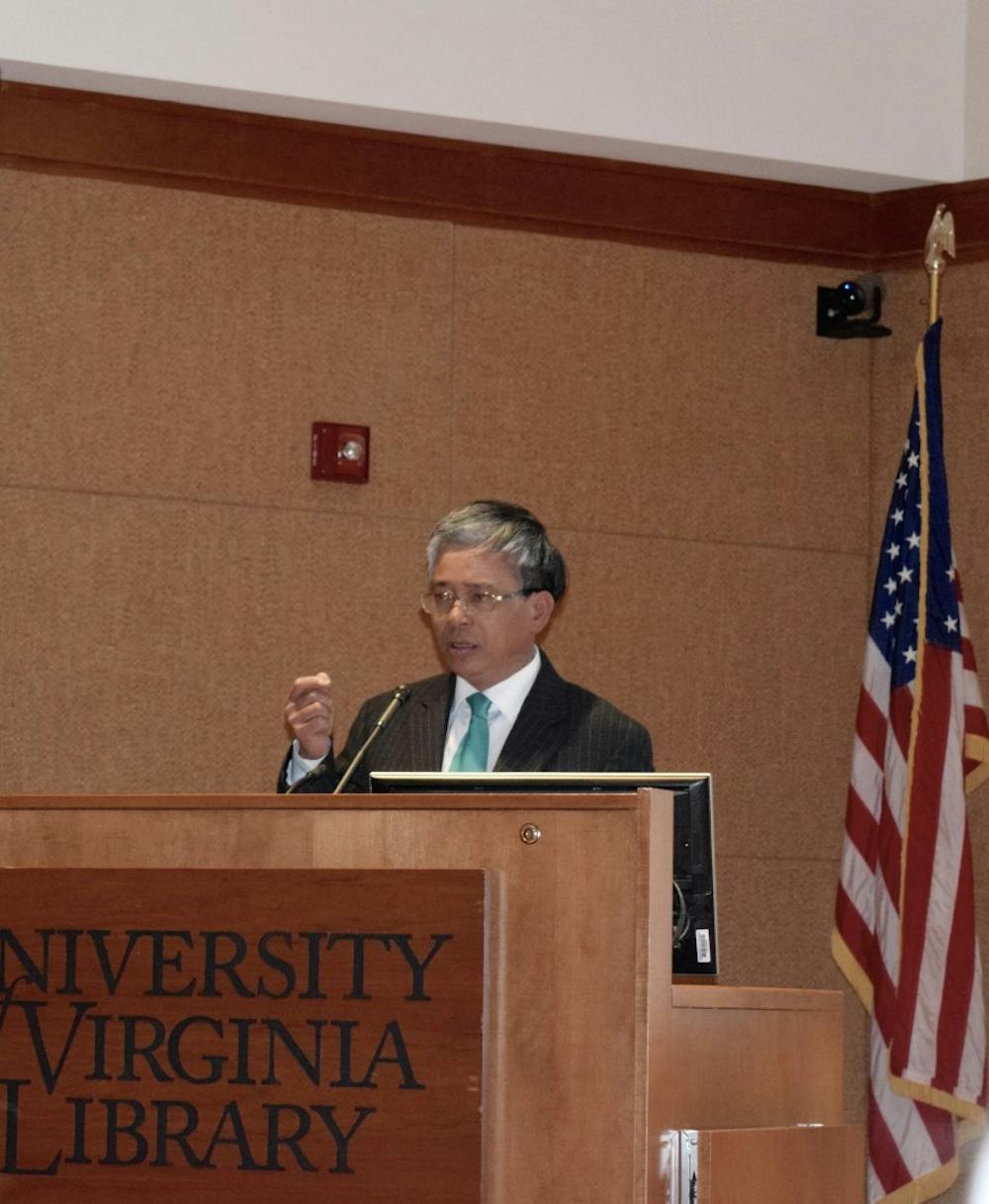Vietnamese Ambassador to the United States Pham Quang Vinh spoke at the University Tuesday afternoon as part of the Ambassador Lecture Series hosted by the University Center for Politics.
The ambassador spoke at length on the current state of relations between Vietnam and the United States, which he consistently referred to as a “comprehensive partnership.”
The lecture, titled “Vietnam, US Relations: Two Decades of Robust Growth and the Way Forward,” was coordinated by the Center for Politics Global Perspectives of Democracy program, the Asia Institute, the International Residence College and the Office of the President. Vinh’s visit was also largely made possible due to Physics Prof. P.Q. Hung, a Vietnam native who maintains a personal relationship with the ambassador.
Vinh delivered a presentation and speech in the basement of the Special Collections Library, emphasizing the “comprehensive partnership” which defined the relationship between Vietnam and the United States since diplomatic relations were fully restored in 1995 under former President Bill Clinton.
The value of annual trade between the United States and Vietnam amounts to $40 billion, while $11 billion of American investment currently resides in the Vietnamese economy, Vinh said.
The ambassador began his speech by outlining three separate 20-year eras which have defined the modern history of Vietnamese and U.S relations. The first existed from 1955-75, during which time the two were military enemies, at odds during both the Vietnam and Cold Wars. Vinh defined the second stage, from 1975-95, as “reconciliatory,” as tensions eased and contact was restored during this period. The final stage, from the 1995 restoration to the present, began the era he described as a “comprehensive partnership.”
Vinh continued from that point to place a significant degree of importance on President Barack Obama’s visit to Vietnam, which will take place this May. In his speech, the ambassador outlined core issues he would address during the president’s visit, including urging the United States to extend more support to Vietnamese maritime authority, particularly near the South China Sea, as well as a total lifting of the arms embargo the United States currently holds over Vietnam.
Daman Irby, director of the Global Perspectives on Democracy program, said although each lecture in the series was sponsored by other organizations, Vinh’s lecture was particularly involved in its coordination efforts. The series has past featured the ambassadors from Germany, Great Britain, Argentina, Russia and Austria.
“Each ambassador event has partners, those for this particular one are especially involved. There is just a wide variety of programs at U.Va. who had a very clear interest,” Irby said.
One institution with such interest was the Asia Institute, an organization which represents a combination of activities of the East Asia Center, South Asia Center, Tibet Center and the Asian Pacific American Studies.
Charles Laughlin, director of the institute and professor of Chinese Literature, said Vinh’s visit coincides with the Southeast Asian Nelson Series — a new lecture series begun this semester thanks from a grant of the family of Bruce Nelson, a former professor of Environmental Science at the University.
“[The program] started this semester and consists of a lecture series and travel grants for students in Southeast Asia,” Laughlin said. “Here, we took advantage of existing channels of ambassador series. In this case, we had faculty who was able to run communication directly while normal channels were running.”
Vinh’s consistent focus on the comprehensive partnership between the two nations follows the normal structure of such lectures, Irby said. Each ambassador in the lecture series has followed a major theme of the relations between their respective nations and the United States during their talks.
The ambassador concluded his talk by reiterating the strong foundation of the partnership between the two nations and called for efforts on behalf of both nations to advance the relationship further.







